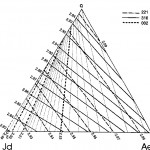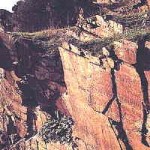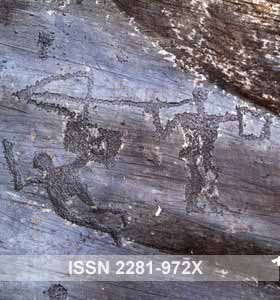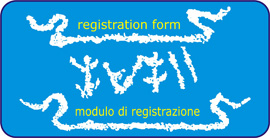|
TRACCE Online Rock Art Bulletin no. 5 |
Archive for TRACCE Onl. RA Bull. 5
TRACCE Online Rock Art Bulletin 5 – Nov 1996
Rock Art newsletters and reviews
TRACCE no. 5 – by editor
Please send Rock Art reviews, newsletters, bulletins, BOOKS, to
Footstep of Man, p.zza Donatori di Sangue 1 – 25040 CERVENO (BS – I). TRACCE will put online indexes and subscription conditions. Read more
The village named Camuna…
TRACCE no. 5 – by III E classroom children, Micca elementary school
The village named Camuna has a party on the moon.
This is a tale invented by children during a Rupestrian Archaeology educational workshop in a Turin (Italy) elementary school. Read more
Use of non destructive X-Ray Diffraction Analyses
TRACCE no. 5 – by G. Chiari, R. Compagnoni, R. Giustetto
Use of non destructive X-Ray Diffraction Analyses for the study of “Green stone” Artifacts.
X-ray powder diffraction analysis (XRPD) was proven to be a very powerful tool for the study of “green stone” Neolithic axes and other artifacts. The amount of material to be sampled can be reduced to a few milligrams, thus making it a quasi-non destructive method. Read more
Côwa Valley joke…
TRACCE no. 5 – by Côwa Valley Rock Art
A joke about some “fresh” figures of palaeolithic Côwa Valley rock art… Read more
Do it nice or give you the truth?
TRACCE no. 5 – by Belinha Campos
Observations on the use of two different rock art tracing methods at Vale de Vermelhosa (Côa area), during the project “Gravado no tempo – Portugal” (Etched in time – Portugal), lead by Mila Simões de Abreu and Ludwig Jaffe. Read more
The geology of the Douro and Côa Valley
TRACCE no. 5 – by José António Bravo Nunez
The geology of the Douro and Côa Valley: general aspects of the rock art areas.
RRegarding the morphostructural units in the Iberian Peninsula, the region of Vila Nova de Foz Côa is part of the Iberian Massif, a fragment of the hercynian block that includes 75% of the peninsular soils, with an altitude of about 600 m above sea level.. Read more
Vermelhosa rock 1, palaeolithic figures
TRACCE no. 5 – by Andrea Arcà
Palaeolithic figures in rock n. 1 of the Vermelhosa – Côa Valley area.
Rock n. 1 of the Vermelhosa Valley (Côa Valley area) lies at 180 m altitude, on the left orographic side of the Douro River, which is flowing few scores of meters below.. Read more
Vermelhosa Iron Age rock art
TRACCE no. 5 – by Angelo Fossati
The Iron Age in the Rock Art of Vermelhosa, Portugal.
Besides the figures attributable to the Palaeolithic times there are also petroglyphs that can be dated to the Iron Age (1st Millennium BC). These figures are engraved scratching the rock surface, sometimes with a stone, other times with a metal tool, as it is possible to note from the outlining. Read more
The Vermelhosa site
TRACCE no. 5 – by M.S. Abreu, A. Arcà, A. Fossati, L. Jaffe
The Vermelhosa site and the “Etched in time” project.
The Vermelhosa site is situated in a small lateral little valley on the orographic left side of the Douro river, less than 1 km down from the Côa confluence in the Douro. Read more
From the Dam to the Park
TRACCE no. 5 – by M.S. Abreu, A. Arcà, A. Fossati, L. Jaffe
The Movement to save Côa Valley engraved rocks was started and led by Mila Simões De Abreu and Ludwig Jaffe, and internationally sustained by many Archaeological scholars, Institutions and Universities (Universidad de Alcalà de Henares, Institut of Archaeology London, Université de Poitiers, British Academy, Society for American Archaeology, University of Bristol, Australian Academy of the Humanities, University of New Mexico…). Read more
Côa Valley: the Discovery
TRACCE no. 5 – by M.S. Abreu, A. Arcà, A. Fossati, L. Jaffe
The great importance of Côa Valley Rock Art reached the headlines of the Portuguese and international press in November 1994. Even now it is taking a big place in Portuguese research, where a distinct division has been defined between the so called A.C. (Antes do Côa – before the Côa) and D.C. (Depois do Côa – After the Côa) Archaeology. Read more
De Foz Côa à l’ensemble du territoire Portugais
TRACCE no. 5 – by Luiz Oosterbeek
De Foz Côa à l’ensemble du territoire Portugais: pur un nouveau rapport du Patrimoine avec la Société
Les musées sont aperçus, souvent, come des lieux de mémoire. Cette vision, certainement valable, est pourtant restreinte. Read more
Sliding into enlightenment
TRACCE no. 5 – by fieldwork participants
Sliding into enlightenment. New fieldwork and research into rock art at Paspardo – Val Camonica
The rocks of La Bosca. A set of surfaces that we would get to know intimately over the next few days. Our task is to discover, record, and catalogue the sometimes enigmatic engravings on these rocks. Read more
Petroglyph National Monument in New Mexico
TRACCE no. 5 – by Petroglyph Monument Protection Coalition
Petroglyph National Monument in New Mexico imperiled by Road Plans
National Monument comprises more than 7,200 acres along Albuquerque’s scenic West Mesa Escarpment and was established by Congress in 1990. Read more
Upside Down Kudu
TRACCE no. 5 – by Grant S. McCall
Upside Down Kudu. Away from Western Stereotypes
It has become painfully obvious on analysis of most texts concerning rock art that most scholarly interpretations are skewed dramatically by our western views of the world today. Read more
Rock art research, a science without a name
 TRACCE no. 5 – by Thomas W. Wyrwoll
TRACCE no. 5 – by Thomas W. Wyrwoll
Rock art research, a science without a name
Rock art research is the science that carries out research in both rock engravings (“petroglyphs”) and rock paintings (“pictographs”). Read more





























